Shows
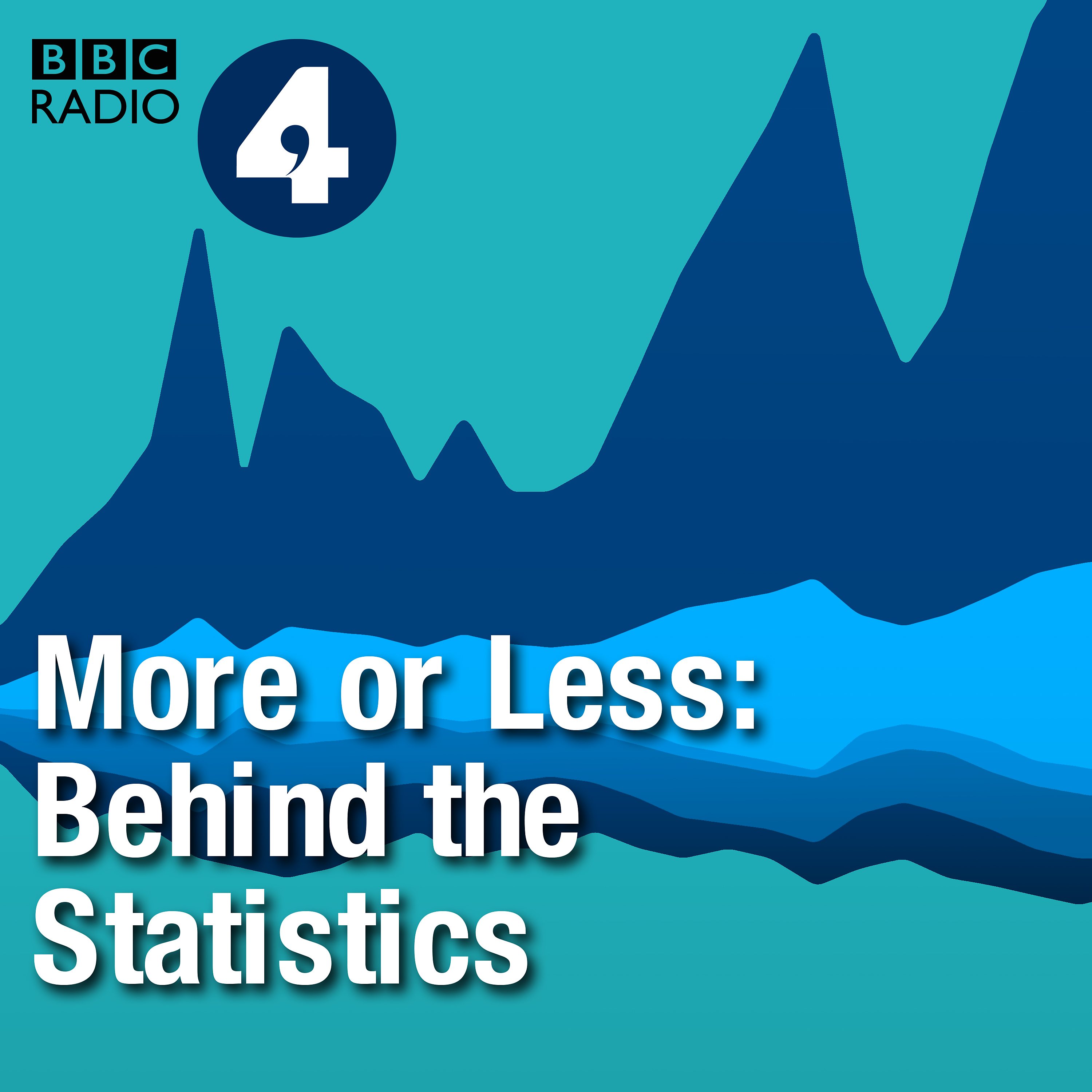 More or Less: Behind the StatsCan Elon Musk save the US Government $2 trillion?President Elect Donald Trump has created a new government advisory group – the Department of Government Efficiency or ‘DOGE’ - to help cut the US budget. The world richest man, Elon Musk, will co-head the department and has pledged to cut ‘at least $2 trillion’ to ‘balance the budget’. But is this possible? We talk to Professor Linda Bilmes about what DOGE could or couldn’t do and how she balanced the budget in the 1990’s. Presenter: Charlotte McDonald
Producer: Lizzy McNeill
Series producer: Tom Colls
Production co-ordinator: Katie Morrison
Sound Mix: Andrew Mills
Editor: Richard Vadon2024-11-3008 min
More or Less: Behind the StatsCan Elon Musk save the US Government $2 trillion?President Elect Donald Trump has created a new government advisory group – the Department of Government Efficiency or ‘DOGE’ - to help cut the US budget. The world richest man, Elon Musk, will co-head the department and has pledged to cut ‘at least $2 trillion’ to ‘balance the budget’. But is this possible? We talk to Professor Linda Bilmes about what DOGE could or couldn’t do and how she balanced the budget in the 1990’s. Presenter: Charlotte McDonald
Producer: Lizzy McNeill
Series producer: Tom Colls
Production co-ordinator: Katie Morrison
Sound Mix: Andrew Mills
Editor: Richard Vadon2024-11-3008 min PolicyCastThe Ghost Budget: How U.S. war spending went rogue, wasted billions, and how to fix itHKS Senior Lecturer Linda Bilmes, an expert on public finance who has studied post-9/11 war costs for the past 20 years, says their staggering $5 trillion cost was enabled by what she calls “The Ghost Budget.” Using an unprecedented combination of borrowing, accounting tricks, and outsourcing, presidential administrations, Congress, and the Pentagon were able to circumvent traditional military budget processes in a way that kept war costs out of the public debate and resulted in trillions being spent with minimal oversight. The result: corporations and wealthy investors raking in huge profits, massive waste and fraud, and—combined with the Bush and Trump...2024-03-2945 min
PolicyCastThe Ghost Budget: How U.S. war spending went rogue, wasted billions, and how to fix itHKS Senior Lecturer Linda Bilmes, an expert on public finance who has studied post-9/11 war costs for the past 20 years, says their staggering $5 trillion cost was enabled by what she calls “The Ghost Budget.” Using an unprecedented combination of borrowing, accounting tricks, and outsourcing, presidential administrations, Congress, and the Pentagon were able to circumvent traditional military budget processes in a way that kept war costs out of the public debate and resulted in trillions being spent with minimal oversight. The result: corporations and wealthy investors raking in huge profits, massive waste and fraud, and—combined with the Bush and Trump...2024-03-2945 min Money For the Rest of UsWhat Happens If The U.S. Defaults On Its Debt? Here's Why It Won'tWhat are the grave consequences if the U.S. debt ceiling isn't increased and the government defaults? What would the Federal Reserve and the Executive Branch do to prevent default if Congress doesn't act?Topics covered include:What are the potential impacts of a U.S. default on the stock and bond markets, and the overall economyWhat causes the U.S. to have a perennial debt ceiling crisisWhy it is uncertain when the U.S. government would run out of money to meet its obligationsWhat the Biden Administration could do to prevent a defaultWhat the Federal...2023-05-1726 min
Money For the Rest of UsWhat Happens If The U.S. Defaults On Its Debt? Here's Why It Won'tWhat are the grave consequences if the U.S. debt ceiling isn't increased and the government defaults? What would the Federal Reserve and the Executive Branch do to prevent default if Congress doesn't act?Topics covered include:What are the potential impacts of a U.S. default on the stock and bond markets, and the overall economyWhat causes the U.S. to have a perennial debt ceiling crisisWhy it is uncertain when the U.S. government would run out of money to meet its obligationsWhat the Biden Administration could do to prevent a defaultWhat the Federal...2023-05-1726 min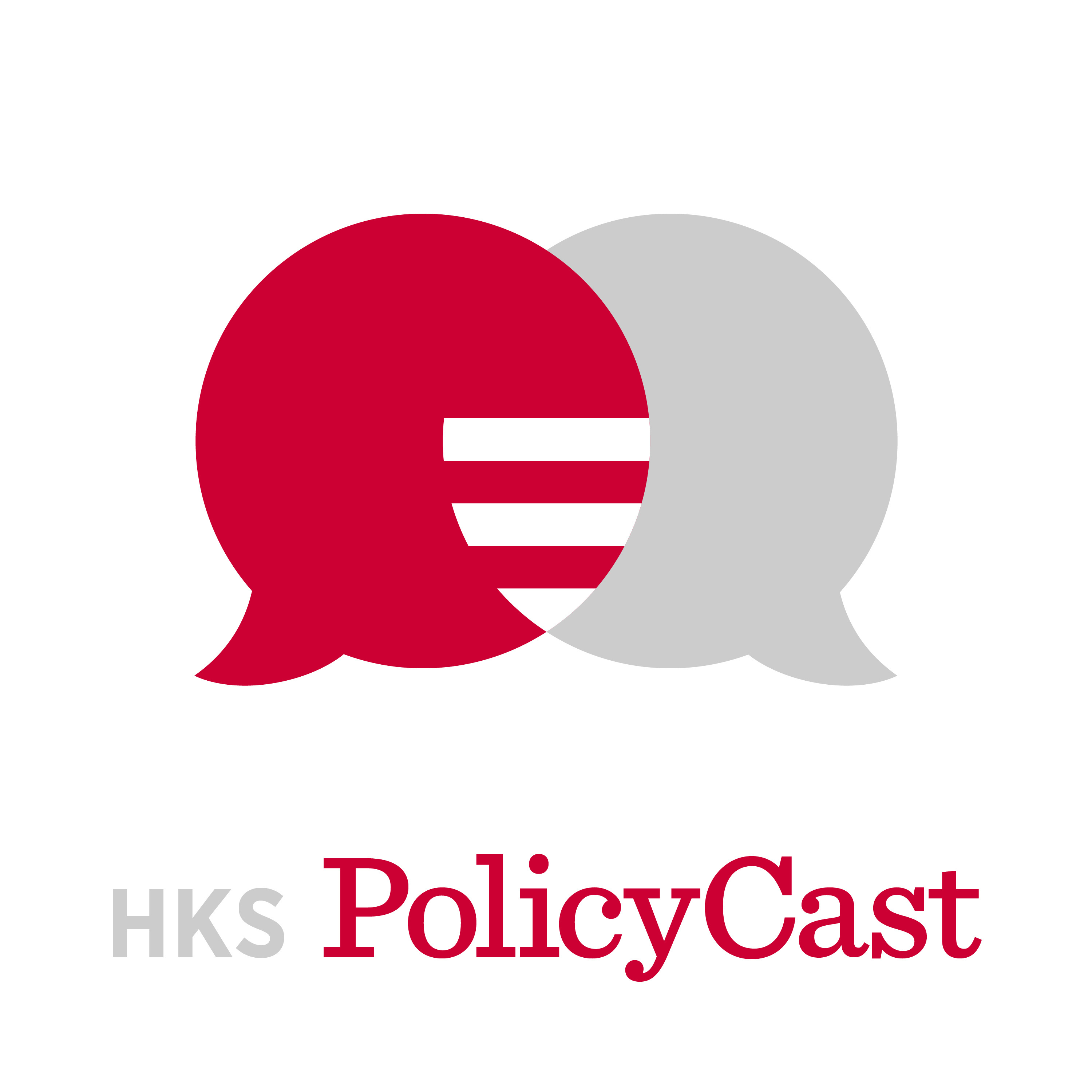 PolicyCastThe U.S. pays reparations every day—just not to Black AmericaHKS faculty members Cornell William Brooks and Linda Bilmes explore the vexing disconnect between the vast US system of restorative justice and the deep-rooted, intergenerational harms suffered by Black Americans. Every day, someone somewhere in America is being compensated under what is known as restorative justice, a type of justice that instead of meting out punishment to a wrongdoer, seeks to make the victims or their families whole—or at least repair them as much as possible. Restorative justice is also known as reparative justice, or, in the context of the experience of Black Americans from the fir...2022-02-0345 min
PolicyCastThe U.S. pays reparations every day—just not to Black AmericaHKS faculty members Cornell William Brooks and Linda Bilmes explore the vexing disconnect between the vast US system of restorative justice and the deep-rooted, intergenerational harms suffered by Black Americans. Every day, someone somewhere in America is being compensated under what is known as restorative justice, a type of justice that instead of meting out punishment to a wrongdoer, seeks to make the victims or their families whole—or at least repair them as much as possible. Restorative justice is also known as reparative justice, or, in the context of the experience of Black Americans from the fir...2022-02-0345 min PolicyCastHow our flawed debates about cost prevent us from spending public money wiselyBarely a news cycle goes by these days without someone in public office saying ‘We can’t afford that,’ while at the same time defending their favorite budget priorities and tossing around mind-numbingly large cost figures in the billions and trillions of dollars. Those debates can seem very cynical, and of course Oscar Wilde famously defined a cynic as a person who knows the cost of everything but the value of nothing. But Harvard Kennedy School Senior Lecturer Linda Bilmes says things are even worse than that—not only are we not having discussions based on value, our understanding of what...2021-12-0244 min
PolicyCastHow our flawed debates about cost prevent us from spending public money wiselyBarely a news cycle goes by these days without someone in public office saying ‘We can’t afford that,’ while at the same time defending their favorite budget priorities and tossing around mind-numbingly large cost figures in the billions and trillions of dollars. Those debates can seem very cynical, and of course Oscar Wilde famously defined a cynic as a person who knows the cost of everything but the value of nothing. But Harvard Kennedy School Senior Lecturer Linda Bilmes says things are even worse than that—not only are we not having discussions based on value, our understanding of what...2021-12-0244 min Policy VetsThe Cost of War is Realized Long After we Leave the BattlefieldLou Celli and guest host Charlie Malone, stepping in for Secretary Shulkin this week, are joined by Dr. Linda J. Bilmes, Harvard Kennedy School Professor and the Daniel Patrick Moynihan Senior Lecturer in Public Policy and Public Finance. This week they talk about the true financial costs of war, which according to her research are woefully understated, and neglect to account for taking care of veterans future needs.2021-08-2752 min
Policy VetsThe Cost of War is Realized Long After we Leave the BattlefieldLou Celli and guest host Charlie Malone, stepping in for Secretary Shulkin this week, are joined by Dr. Linda J. Bilmes, Harvard Kennedy School Professor and the Daniel Patrick Moynihan Senior Lecturer in Public Policy and Public Finance. This week they talk about the true financial costs of war, which according to her research are woefully understated, and neglect to account for taking care of veterans future needs.2021-08-2752 min Special BriefingFiscal and Operational Priorities for Cities in the COVID Crisis EraNavigating an unprecedented mix of challenges mayors across the US rely on innovative fiscal and managerial actions to navigate the lasting early impacts of the COVID-19 pandemic and new challenges on the horizon. In discussing these actions panelists touch on the research on city fiscal conditions by Professor Reschovsky as well as a new national survey of municipal leaders by Engaging Local Government Leaders, Route Fifty, and other partners.
This special briefing features a panel of experts, including Linda J. Bilmes, Daniel Patrick Moynihan senior lecturer in public policy and public finance, Harvard Kennedy School, Harvard University; Andrew Reschovsky, professor...2020-09-1053 min
Special BriefingFiscal and Operational Priorities for Cities in the COVID Crisis EraNavigating an unprecedented mix of challenges mayors across the US rely on innovative fiscal and managerial actions to navigate the lasting early impacts of the COVID-19 pandemic and new challenges on the horizon. In discussing these actions panelists touch on the research on city fiscal conditions by Professor Reschovsky as well as a new national survey of municipal leaders by Engaging Local Government Leaders, Route Fifty, and other partners.
This special briefing features a panel of experts, including Linda J. Bilmes, Daniel Patrick Moynihan senior lecturer in public policy and public finance, Harvard Kennedy School, Harvard University; Andrew Reschovsky, professor...2020-09-1053 min Business 20/20Two Geopolitical Shocks of 2001Episode SummarySeptember 11th, 2001, was a day of horror that changed our sense of self and our place in the world. It also changed the US economy, shaping everything from government policy to how businesses operate. This episode explores the decades-long aftershock of that day, alongside those of another day in 2001: December 11th, when China joined the WTO. Examining these stories together challenges simple narratives that globalization will make societies richer and in time, more democratic. What comes next—and how should businesses prepare? Episode NotesGuestsLinda Bilmes, Jim Barkley, Reg...2019-12-1800 min
Business 20/20Two Geopolitical Shocks of 2001Episode SummarySeptember 11th, 2001, was a day of horror that changed our sense of self and our place in the world. It also changed the US economy, shaping everything from government policy to how businesses operate. This episode explores the decades-long aftershock of that day, alongside those of another day in 2001: December 11th, when China joined the WTO. Examining these stories together challenges simple narratives that globalization will make societies richer and in time, more democratic. What comes next—and how should businesses prepare? Episode NotesGuestsLinda Bilmes, Jim Barkley, Reg...2019-12-1800 min National Parks Traveler PodcastNational Parks Traveler: NPS's Fiscal Fitness, Rockets Over Cumberland Island, Death Valley WinterTwo professors, one from Harvard, the other from Colorado State University, studied the National Park Service's fiscal condition, and came up with some suggestions for improving it. Professor Linda Bilmes discusses those opportunities with Traveler. We also look at possible impacts to Cumberland Island National Seashore from a proposed spaceport, and end this week's podcast with thoughts of visiting Death Valley National Park this winter.2019-10-2753 min
National Parks Traveler PodcastNational Parks Traveler: NPS's Fiscal Fitness, Rockets Over Cumberland Island, Death Valley WinterTwo professors, one from Harvard, the other from Colorado State University, studied the National Park Service's fiscal condition, and came up with some suggestions for improving it. Professor Linda Bilmes discusses those opportunities with Traveler. We also look at possible impacts to Cumberland Island National Seashore from a proposed spaceport, and end this week's podcast with thoughts of visiting Death Valley National Park this winter.2019-10-2753 min Harvard UniversityColin Mayer on The Purpose and Future of the CorporationColin Mayer on The Purpose and Future of the Corporation
This seminar was given on February 21, 2019 by Colin Mayer, Peter Moores Professor of Management Studies at the University of Oxford. Also participating in the conversation were John Ruggie, Berthold Beitz Professor in Human Rights and International Affairs at HKS and Linda Bilmes, Daniel Patrick Moynihan Senior Lecturer in Public Policy at Harvard. It was given as part of M-RCBG's weekly Business & Government Seminar Series.
Transcript: https://www.hks.harvard.edu/sites/default/files/centers/mrcbg/files/Mayer_2.19.19.transcript.pdf2019-02-261h 12
Harvard UniversityColin Mayer on The Purpose and Future of the CorporationColin Mayer on The Purpose and Future of the Corporation
This seminar was given on February 21, 2019 by Colin Mayer, Peter Moores Professor of Management Studies at the University of Oxford. Also participating in the conversation were John Ruggie, Berthold Beitz Professor in Human Rights and International Affairs at HKS and Linda Bilmes, Daniel Patrick Moynihan Senior Lecturer in Public Policy at Harvard. It was given as part of M-RCBG's weekly Business & Government Seminar Series.
Transcript: https://www.hks.harvard.edu/sites/default/files/centers/mrcbg/files/Mayer_2.19.19.transcript.pdf2019-02-261h 12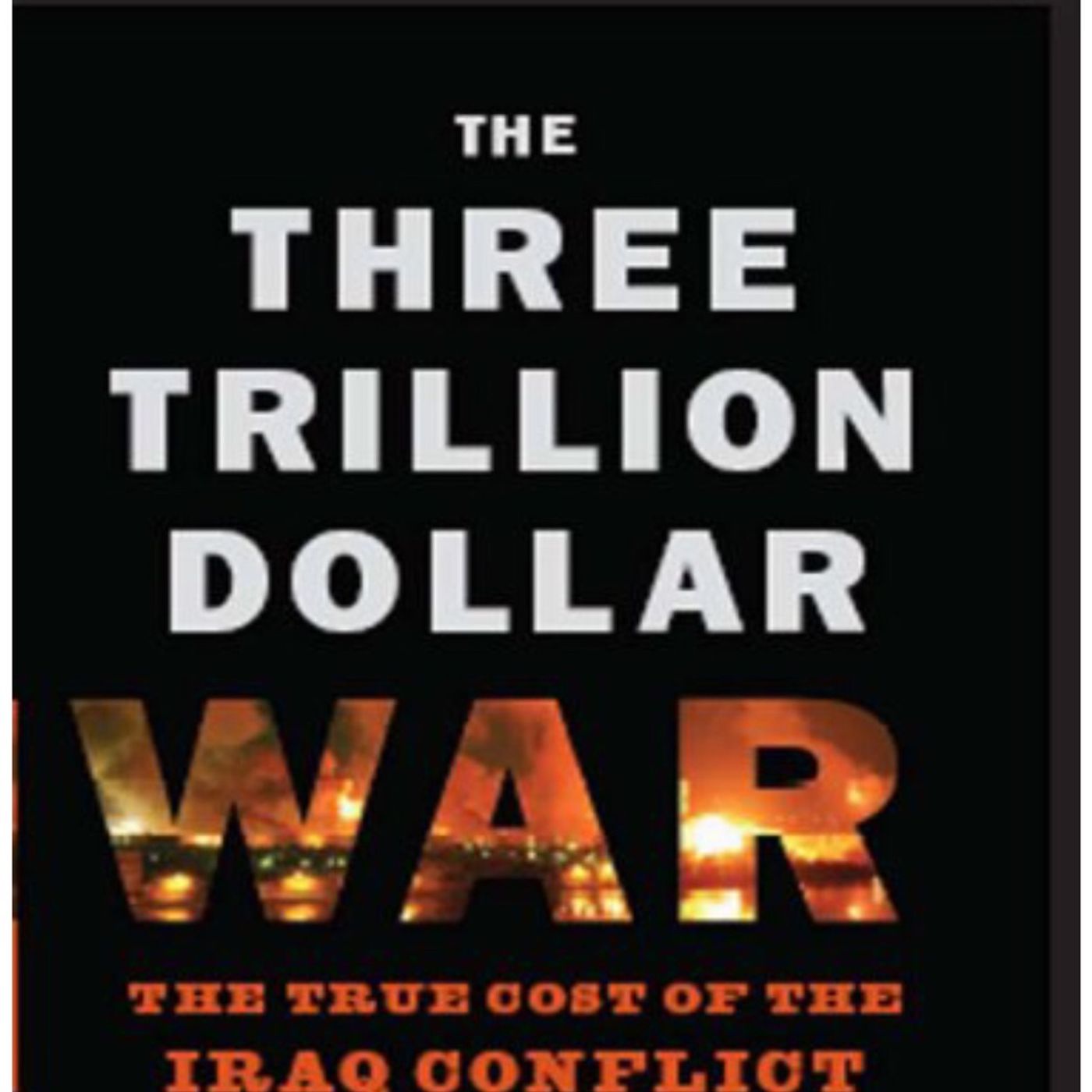 Circle Of Insight- Foreign AffairsA look at The True Cost Of The Iraq WarThe true cost of the Iraq War is $3 trillion—and counting—rather than the $50 billion projected by the White House.Apart from its tragic human toll, the Iraq War will be staggeringly expensive in financial terms. This sobering study by Nobel Prize winner Joseph E. Stiglitz and Harvard professor Linda J. Bilmes casts a spotlight on expense items that have been hidden from the U.S. taxpayer, including not only big-ticket items like replacing military equipment (being used up at six times the peacetime rate) but also the cost of caring for thousands of wounded veterans—for the re...2015-09-2818 min
Circle Of Insight- Foreign AffairsA look at The True Cost Of The Iraq WarThe true cost of the Iraq War is $3 trillion—and counting—rather than the $50 billion projected by the White House.Apart from its tragic human toll, the Iraq War will be staggeringly expensive in financial terms. This sobering study by Nobel Prize winner Joseph E. Stiglitz and Harvard professor Linda J. Bilmes casts a spotlight on expense items that have been hidden from the U.S. taxpayer, including not only big-ticket items like replacing military equipment (being used up at six times the peacetime rate) but also the cost of caring for thousands of wounded veterans—for the re...2015-09-2818 min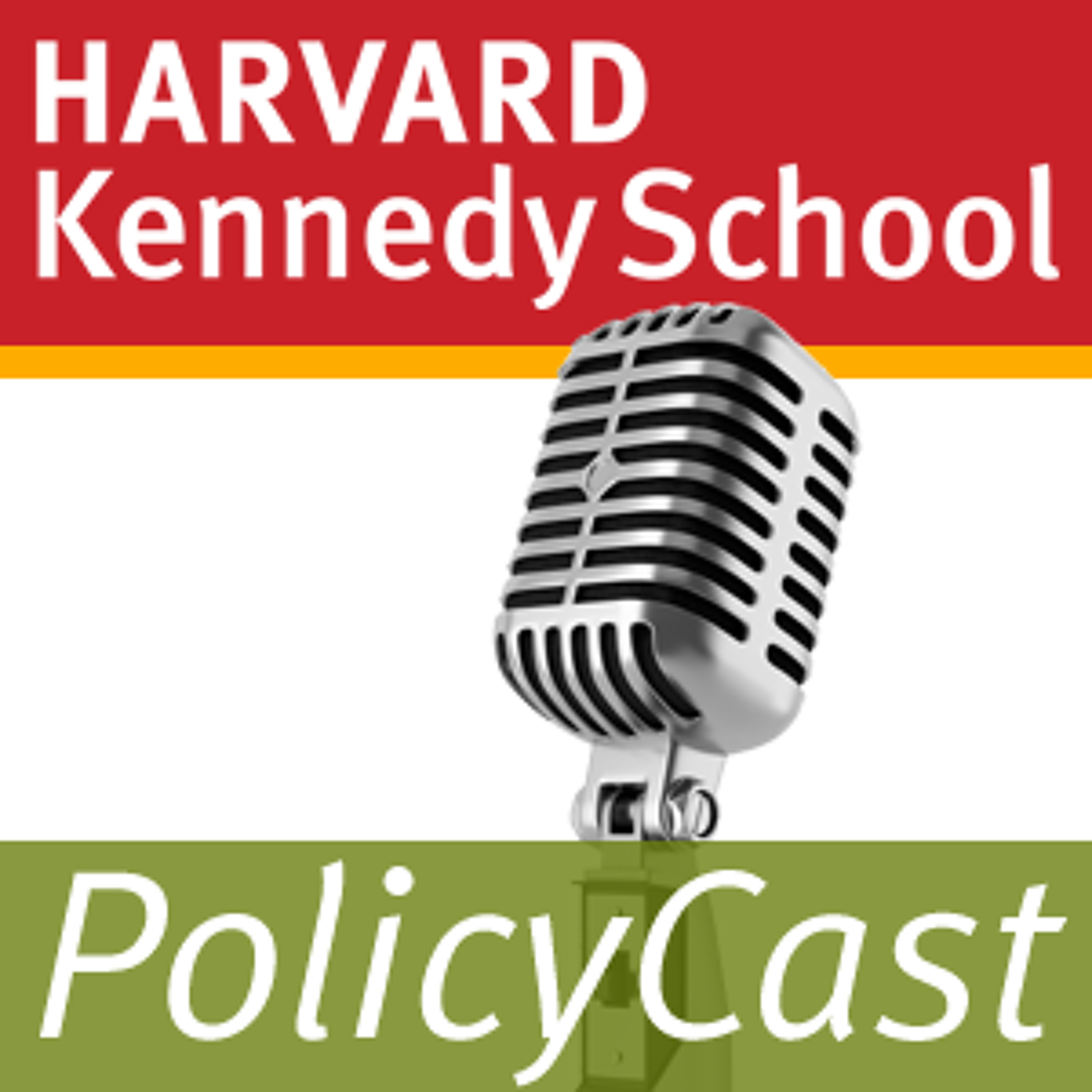 PolicyCast | Harvard Kennedy SchoolLinda Bilmes on the Sequester and Fixing the US Budgeting Process | PolicyCastThe much-hyped sequester was designed to force Democrats and Republicans into a budget compromise, but now that it has been signed, neither party seems happy with the result. HKS Senior Lecturer Linda Bilmes explains why the sequester is an undesirable approach to cutting the budget and shares her ideas on how the system can be changed to eliminate waste efficiently.2013-03-1319 min
PolicyCast | Harvard Kennedy SchoolLinda Bilmes on the Sequester and Fixing the US Budgeting Process | PolicyCastThe much-hyped sequester was designed to force Democrats and Republicans into a budget compromise, but now that it has been signed, neither party seems happy with the result. HKS Senior Lecturer Linda Bilmes explains why the sequester is an undesirable approach to cutting the budget and shares her ideas on how the system can be changed to eliminate waste efficiently.2013-03-1319 min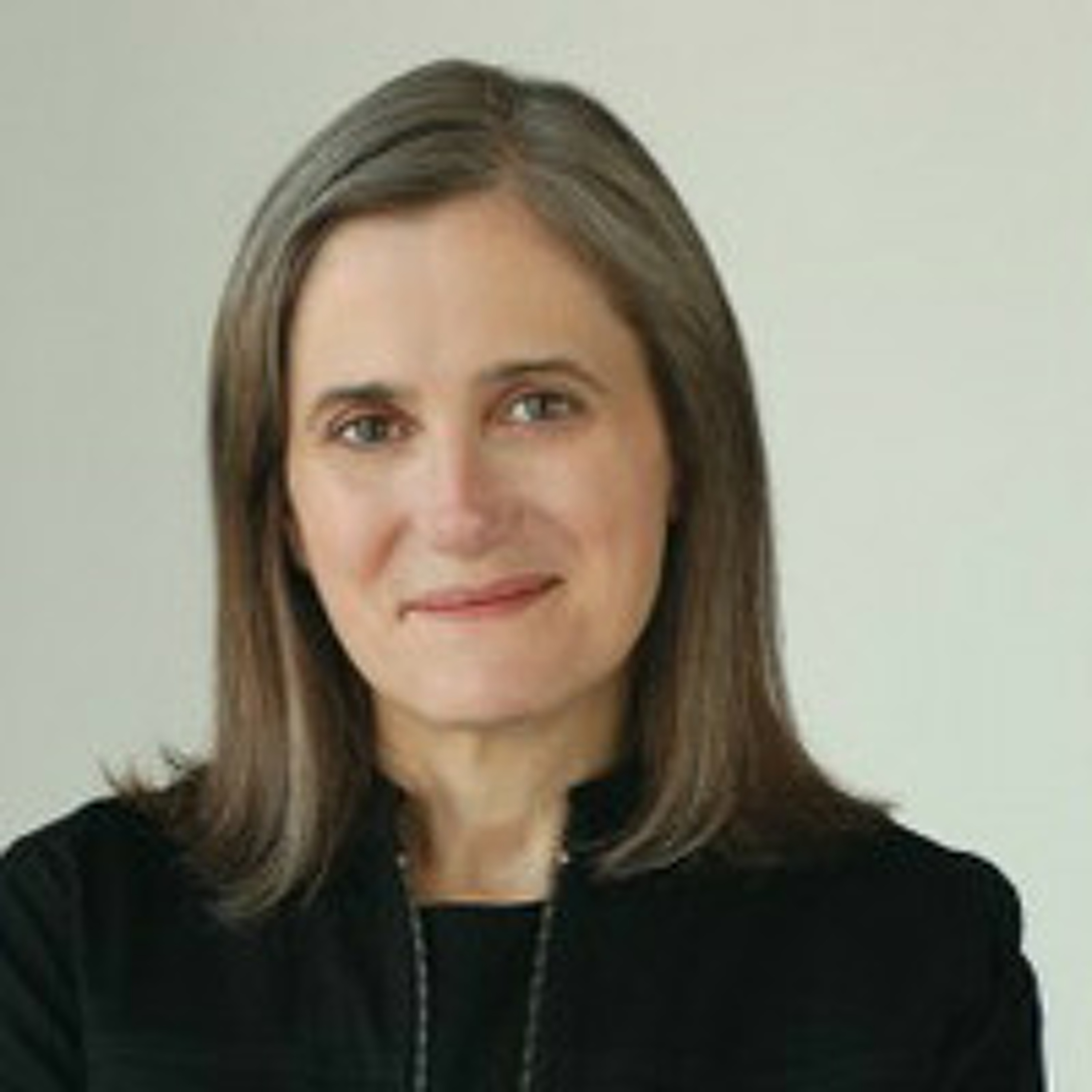 Audio Book: The Silenced Majority: Stories of Uprisings, Occupations, Resistance and Hope"Deficit Doves." By Amy GoodmanAward-winning journalist and Democracy Now! host Amy Goodman records a podcast in conjunction with her weekly column, which you can read here: http://bit.ly/QBC5S
July 21, 2010
Read this column by Amy Goodman with Denis Moynihan:
Getting out of the red is the new black. Deficit hawks have swooped down on the U.S. budget. This week, they attacked unemployment benefits.
Ultimately, they are going after Social Security and Medicare/Medicaid, the venerable programs once considered untouchable “third rails” of U.S. politics. These have been replaced by a new third rail, the defense budget. To really deal with annu...2012-11-2605 min
Audio Book: The Silenced Majority: Stories of Uprisings, Occupations, Resistance and Hope"Deficit Doves." By Amy GoodmanAward-winning journalist and Democracy Now! host Amy Goodman records a podcast in conjunction with her weekly column, which you can read here: http://bit.ly/QBC5S
July 21, 2010
Read this column by Amy Goodman with Denis Moynihan:
Getting out of the red is the new black. Deficit hawks have swooped down on the U.S. budget. This week, they attacked unemployment benefits.
Ultimately, they are going after Social Security and Medicare/Medicaid, the venerable programs once considered untouchable “third rails” of U.S. politics. These have been replaced by a new third rail, the defense budget. To really deal with annu...2012-11-2605 min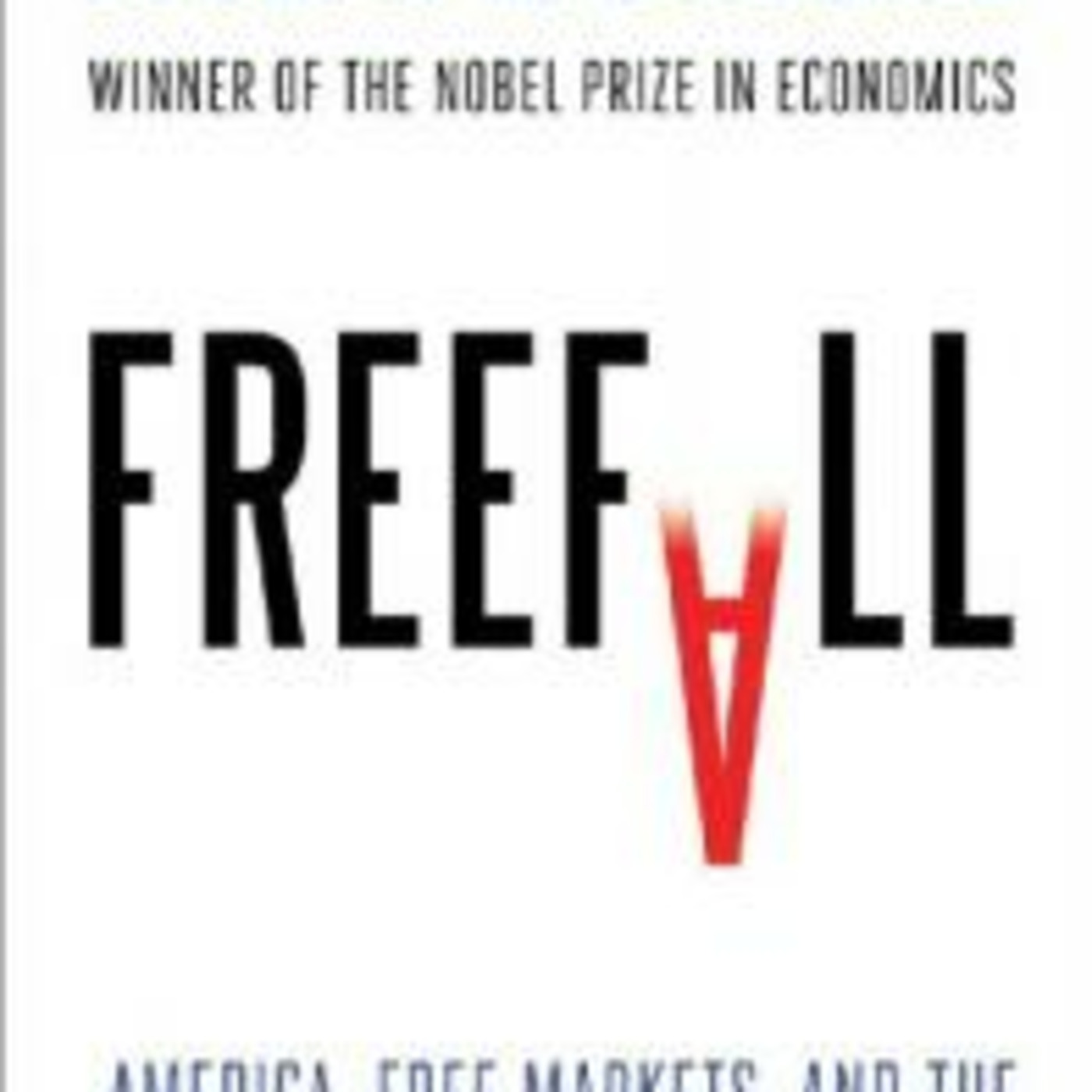 Free Forum with Terrence McNallyQ&A: STIGLITZ, JOSEPH - Nobel Prize (Economics) & AuthorAired 03/07/10JOSEPH STIGLITZ became a full professor at Yale in 1970 at the age of 27, and in 1979 was awarded the John Bates Clark Award, as the economist under 40 who had made the most significant contribution to the field. He has taught at Princeton, Stanford, MIT and Oxford, and is now University Professor at Columbia University, Chair of Columbia's Committee on Global Thought, and co-founder and Executive Director of the Initiative for Policy Dialogue. Stiglitz was a member and chairman of the Council of Economic Advisers during the Clinton administration, and later Chief Economist and Senior Vice-President of...2010-03-1152 min
Free Forum with Terrence McNallyQ&A: STIGLITZ, JOSEPH - Nobel Prize (Economics) & AuthorAired 03/07/10JOSEPH STIGLITZ became a full professor at Yale in 1970 at the age of 27, and in 1979 was awarded the John Bates Clark Award, as the economist under 40 who had made the most significant contribution to the field. He has taught at Princeton, Stanford, MIT and Oxford, and is now University Professor at Columbia University, Chair of Columbia's Committee on Global Thought, and co-founder and Executive Director of the Initiative for Policy Dialogue. Stiglitz was a member and chairman of the Council of Economic Advisers during the Clinton administration, and later Chief Economist and Senior Vice-President of...2010-03-1152 min Oxford Martin School: Public Lectures and SeminarsStiglitz on Credit Crunch - Global Financial Debacle: Meeting the Challenges of Global Governance in the 21st CenturyThe global financial crisis reflects a failure of global economic governance. The failure of America's regulatory system has not only ramifications for the American economy, but for the global economy. It is clear that the banks' risk management systems could not even protect their own shareholders, let alone the well-being of the global economy. What went wrong? Where did the global financial regulators fail? What can we do to minimize the downturn? And what, if anything, can we do to prevent a recurrence? What are the lessons for global governance in the 21st Century? Joseph E. Stiglitz is University Professor...2008-06-1045 min
Oxford Martin School: Public Lectures and SeminarsStiglitz on Credit Crunch - Global Financial Debacle: Meeting the Challenges of Global Governance in the 21st CenturyThe global financial crisis reflects a failure of global economic governance. The failure of America's regulatory system has not only ramifications for the American economy, but for the global economy. It is clear that the banks' risk management systems could not even protect their own shareholders, let alone the well-being of the global economy. What went wrong? Where did the global financial regulators fail? What can we do to minimize the downturn? And what, if anything, can we do to prevent a recurrence? What are the lessons for global governance in the 21st Century? Joseph E. Stiglitz is University Professor...2008-06-1045 min Justice TalkingThe US EconomyA major focus for voters in the race for president is concern over the economy. But what are the hidden costs behind headline issues like soaring food prices, free trade agreements, as well as the war in Iraq? On this edition of Justice Talking, we'll look at why food prices are going up and how some Americans are struggling to put food on the table; we'll talk about whether trade agreements are good or bad for America's workforce; and Linda Bilmes explains how she and a Nobel Prize-winning economist determined that the war is costing a staggering three trillion dollars...2008-05-2000 min
Justice TalkingThe US EconomyA major focus for voters in the race for president is concern over the economy. But what are the hidden costs behind headline issues like soaring food prices, free trade agreements, as well as the war in Iraq? On this edition of Justice Talking, we'll look at why food prices are going up and how some Americans are struggling to put food on the table; we'll talk about whether trade agreements are good or bad for America's workforce; and Linda Bilmes explains how she and a Nobel Prize-winning economist determined that the war is costing a staggering three trillion dollars...2008-05-2000 min JourneyWithJesus.net PodcastJwJ: Sunday April 27, 2008Weekly JourneywithJesus.net postings, read by Daniel B. Clendenin. Essay: *From Synagogues and Sanctuaries to Bars and Boardrooms: The Apostle Paul at the Areopagus* for Sunday, 27 April 2008; book review: *The Three Trillion Dollar War; The True Cost of the Iraq Conflict* by Joseph Stiglitz and Linda Bilmes (2008); film review: *Yesterday* (2004, Zulu); poem review: *O Shepherd of Souls* by Hildegard of Bingen.2008-04-2120 min
JourneyWithJesus.net PodcastJwJ: Sunday April 27, 2008Weekly JourneywithJesus.net postings, read by Daniel B. Clendenin. Essay: *From Synagogues and Sanctuaries to Bars and Boardrooms: The Apostle Paul at the Areopagus* for Sunday, 27 April 2008; book review: *The Three Trillion Dollar War; The True Cost of the Iraq Conflict* by Joseph Stiglitz and Linda Bilmes (2008); film review: *Yesterday* (2004, Zulu); poem review: *O Shepherd of Souls* by Hildegard of Bingen.2008-04-2120 min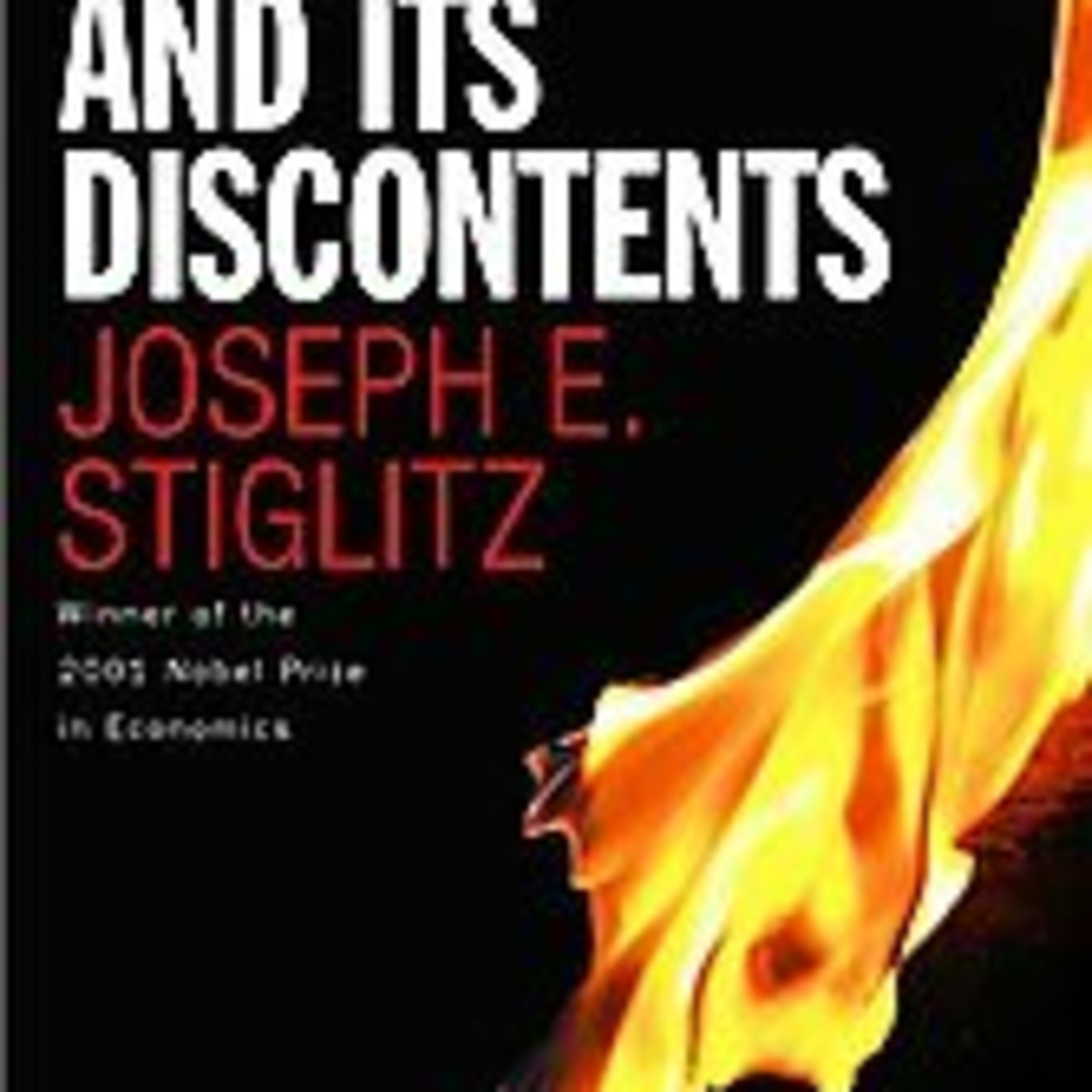 Free Forum with Terrence McNallyQ&A: JOSEPH STIGLITZ, Nobel Prize Winning Economist and AuthorJOSEPH STIGLITZ is University Professor at Columbia University in New York and Chair of Columbia University's Committee on Global Thought. In 2001, he was awarded the Nobel Prize in economics for his analyses of markets with asymmetric information. His work has helped explain the circumstances in which markets do not work well, and how selective government intervention can improve their performance.Stiglitz was a member of the Council of Economic Advisers from 1993-95, during the Clinton administration, and served as CEA chairman from 1995-97. He then became Chief Economist and Senior Vice-President of the World Bank from 1997-2000.2008-04-0426 min
Free Forum with Terrence McNallyQ&A: JOSEPH STIGLITZ, Nobel Prize Winning Economist and AuthorJOSEPH STIGLITZ is University Professor at Columbia University in New York and Chair of Columbia University's Committee on Global Thought. In 2001, he was awarded the Nobel Prize in economics for his analyses of markets with asymmetric information. His work has helped explain the circumstances in which markets do not work well, and how selective government intervention can improve their performance.Stiglitz was a member of the Council of Economic Advisers from 1993-95, during the Clinton administration, and served as CEA chairman from 1995-97. He then became Chief Economist and Senior Vice-President of the World Bank from 1997-2000.2008-04-0426 min How to Discover Free Audiobook in Radio & TV, Great InterviewsFresh Air, Linda J. Bilmes and Joseph Stiglitz, March 3, 2008 by Terry Gross | Free AudiobookListen to full audiobooks for free on :https://hotaudiobook.com/freeTitle: Fresh Air, Linda J. Bilmes and Joseph Stiglitz, March 3, 2008
Author: Terry Gross
Length: 51 mins
Language: English
Release date: 03-03-08
Publisher: WHYY-FM
Genres: Radio & TV, Great Interviews
Summary:
Linda J. Bilmes is professor of public finance at Harvard's Kennedy School of Government. She has collaborated on a new book with Joseph E. Stiglitz, a Nobel Prize-winning economist who teaches at Columbia University: The Three Trillion Dollar War: The True Cost of the Iraq Conflict. We hear from Bilmes in the first half of the show and then Stiglitz in...2008-03-0351 min
How to Discover Free Audiobook in Radio & TV, Great InterviewsFresh Air, Linda J. Bilmes and Joseph Stiglitz, March 3, 2008 by Terry Gross | Free AudiobookListen to full audiobooks for free on :https://hotaudiobook.com/freeTitle: Fresh Air, Linda J. Bilmes and Joseph Stiglitz, March 3, 2008
Author: Terry Gross
Length: 51 mins
Language: English
Release date: 03-03-08
Publisher: WHYY-FM
Genres: Radio & TV, Great Interviews
Summary:
Linda J. Bilmes is professor of public finance at Harvard's Kennedy School of Government. She has collaborated on a new book with Joseph E. Stiglitz, a Nobel Prize-winning economist who teaches at Columbia University: The Three Trillion Dollar War: The True Cost of the Iraq Conflict. We hear from Bilmes in the first half of the show and then Stiglitz in...2008-03-0351 min